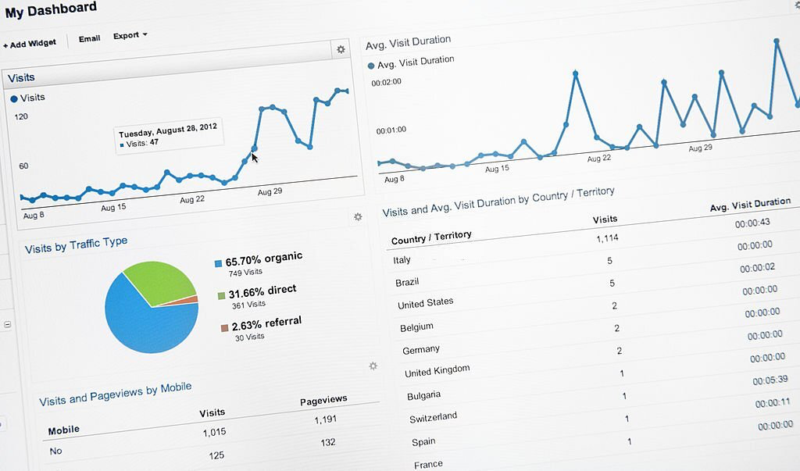
The Top SEO Software Tools for Small Businesses in 2023

Search engine optimization (SEO) is crucial for small businesses looking to increase their online visibility and attract more customers. However, achieving good SEO results can be a challenging task for small business owners who lack the necessary expertise and resources. This is where SEO software tools come in handy, providing small businesses with the necessary tools and features to optimize their website for search engines. In this article, we will discuss what SEO software is and how it can benefit small businesses.
What is SEO Software?
SEO software refers to a set of tools designed to help businesses improve their website’s ranking on search engine result pages (SERPs). It includes a wide range of features and functionalities that can aid in keyword research, on-page optimization, technical SEO, link building, and other aspects of SEO.
There are different types of SEO software available, ranging from free tools to paid versions with advanced features. While free SEO tools can be an excellent starting point for small businesses, paid tools usually provide more comprehensive and accurate results.
Some examples of popular SEO software tools include Google Search Console, Google Analytics, Yoast SEO, Ahrefs, SEMrush, and Moz. These tools offer various features such as keyword research, site analysis, backlink tracking, and more.
How to Choose the Best SEO Software for Small Business?
When choosing the best SEO software for your small business, there are several factors to consider. Here are some things to keep in mind:
- SEO Features: Look for an SEO tool that offers features like keyword research, on-page optimization, backlink analysis, competitor analysis, and website performance tracking.
- Price: Consider the cost of the SEO tool and whether it fits within your budget. Some SEO software tools offer free versions or trial periods, while others require a monthly or annual subscription.
- User-Friendliness: Look for an SEO tool that is easy to use and understand. A tool with a simple, visual interface can help you quickly identify issues and make necessary changes.
- Customization: Consider the level of customization the SEO tool offers. You want to be able to customize your SEO plan to meet your specific needs and goals.
- Customer Support: Look for an SEO tool that offers customer support, whether it’s through email, phone, or chat. Good customer support can help you resolve any issues quickly and ensure that you’re getting the most out of the tool.
Some of the best SEO software tools available on the market today include Google Search Console, SEMrush, Ahrefs, Moz, and Google Analytics. Each of these tools offers unique features and functionalities, so it’s important to compare them and choose the one that best fits your needs and budget.
DIY SEO Tips for Small Business

DIY SEO, or do-it-yourself SEO, is an approach to search engine optimization that involves implementing SEO strategies without the help of an SEO expert or agency. This can be a cost-effective way for small businesses to improve their online visibility and drive more traffic to their website.
Here are some DIY SEO tips for small businesses:
- Conduct Keyword Research: Use a keyword research tool to identify relevant and profitable keywords for your business. Incorporate these keywords into your website content and metadata.
- Optimize On-Page Elements: Make sure your website’s title tags, meta descriptions, headers, and content are optimized for search engines. Use descriptive, keyword-rich titles and descriptions and incorporate keywords throughout your content.
- Create High-Quality Content: Regularly publish high-quality, informative content that includes relevant keywords. This can help improve your website’s rankings and attract more organic traffic.
- Build Backlinks: Seek out opportunities to build backlinks to your website from other reputable sites. This can help improve your website’s authority and visibility in search engine results pages.
- Use DIY SEO Tools: There are many free and low-cost DIY SEO tools available that can help you identify and address SEO issues on your website. Some popular tools include Yoast SEO, Google Trends, and Google Webmaster Tools.
When implementing DIY SEO strategies, it’s important to follow best practices and stay up-to-date on the latest SEO trends and strategies. Consider attending SEO workshops or webinars, reading SEO blogs and articles, and networking with other small business owners to stay informed and improve your SEO efforts.
What Makes an SEO Tool Suitable for a Small Business?
When it comes to choosing an SEO tool for your small business, there are several factors to consider. First and foremost, it should cater to the specific needs and requirements of small businesses. Small businesses have different SEO needs than large corporations, and therefore require different features and functionalities from their SEO software.
One of the most critical aspects to consider when choosing an SEO tool is its features and functionalities. The tool should provide the necessary features required for a small business, such as local SEO, on-page optimization, keyword research, technical SEO, and more. An all-in-one SEO tool that covers all aspects of SEO is ideal for small businesses.
Another essential feature for small businesses is a user-friendly interface. The tool should be easy to navigate, and the results should be presented in a visual format that is easy to understand. This will help small business owners who are not SEO experts to use the tool effectively.
A small business SEO tool should also be affordable. Small businesses typically have a limited budget, and therefore require an SEO tool that is cost-effective. There are several free SEO tools available in the market, but they often have limited features. A paid SEO tool that offers a range of features at an affordable price is an excellent option for small businesses.
Some examples of SEO software tools that are specifically designed for small businesses include Moz Local, SEMrush, and Ahrefs. These tools offer features such as local SEO, on-page optimization, keyword research, and more. They are also affordable and easy to use, making them ideal for small businesses.
The Best SEO Tools for Small Businesses
In 2023, there are many small business SEO software tools available in the market. However, not all of them are suitable for small businesses. Here are some of the best SEO software tools for small businesses:
- Moz: Moz is one of the best SEO tools for small businesses. It offers features such as keyword research, on-page optimization, link building, and more. Moz also provides a range of SEO metrics that small businesses can use to track their organic search traffic.
- SEMrush: SEMrush is an all-in-one SEO tool that offers features such as keyword research, site audit, competitor analysis, and more. It’s an excellent tool for small businesses looking to improve their online visibility and drive more traffic to their website.
- Ahrefs: Ahrefs is a powerful SEO tool that offers features such as backlink analysis, keyword research, site audit, and more. It’s an all-in-one SEO tool that provides comprehensive insights into a website’s SEO needs.
- Google My Business: Google My Business is a free tool that helps small businesses to manage their online presence across Google, including search and maps. It’s an excellent tool for improving local SEO and increasing visibility in search results.
- Google Ads: Google Ads is a marketing tool that helps small businesses to advertise their products or services on Google. It’s an excellent tool for increasing visibility in search results and driving traffic to a website.
- Ubersuggest: Ubersuggest is a free SEO analysis tool that provides small businesses with keyword suggestions, traffic analysis, and more. It’s a great tool for small businesses on a tight budget.
Benefits of SEO Software for Small Businesses

Small businesses can greatly benefit from using SEO software. SEO software can help small businesses improve their search engine rankings, drive more traffic to their website, and ultimately increase their revenue. Here are some specific benefits of using SEO software for small businesses:
- Time-saving: SEO software can automate many SEO tasks such as keyword research, link building, and content optimization. This can save small businesses a lot of time and effort, allowing them to focus on other important aspects of their business.
- Improved keyword targeting: SEO software can help small businesses find the best keywords to target for their business. This can lead to improved rankings in search engine result pages and higher organic search traffic.
- Enhanced website optimization: SEO software can help small businesses optimize their website for search engines. This includes on-page SEO such as meta tags, heading tags, and internal linking. Some SEO software also includes technical SEO features such as site speed optimization and schema markup.
- Better content creation: Some SEO software includes content analysis tools that can help small businesses create better content for their website. This can help improve search engine rankings and drive more traffic to their website.
- Detailed analysis and reporting: SEO software can provide small businesses with detailed analysis and reporting on their website’s SEO performance. This includes information on keyword rankings, backlinks, organic search traffic, and more. This information can help small businesses make data-driven decisions to improve their SEO performance.
When it comes to choosing between free and paid SEO software, small businesses should carefully consider their specific needs and budget. While free SEO software can provide some basic functionality, paid SEO software typically includes more advanced features and can provide better results.
What else can small businesses do to improve their SEO performance?
If you’re a small business owner, there are many things you can do to improve your SEO performance in addition to using SEO software. Here are some ideas to get you started:
- Use local SEO: If your small business serves a specific geographic area, using local SEO strategies can help improve your visibility in local search results. This includes optimizing your Google My Business listing, creating location-specific content, and building local backlinks.
- Focus on content: Creating high-quality content that provides value to your target audience can help improve your search engine rankings and drive more traffic to your website. Use keyword research to identify topics that your target audience is searching for and create content around those topics.
- Build backlinks: Backlinks are a key factor in search engine rankings. Focus on building high-quality backlinks from relevant websites in your industry.
- Monitor your SEO performance: Regularly monitor your website’s SEO performance using tools like Google Analytics and Google Search Console. This can help you identify areas for improvement and track the effectiveness of your SEO strategies.
- Stay up to date with SEO best practices: SEO is constantly evolving, so it’s important to stay up to date with the latest best practices. Follow reputable SEO blogs and industry experts to stay informed about the latest trends and strategies.
By combining the use of SEO software with these additional strategies, small businesses can improve their search engine rankings, drive more traffic to their website, and ultimately grow their business.
Leveraging Google Search Console, Google Analytics, and Google My Business for Your Small Business SEO Strategy

Small businesses can greatly benefit from leveraging the power of Google Search Console, Google Analytics, and Google My Business for their SEO strategy. These three tools provide invaluable insights that help improve the performance of a website in search engine results pages (SERPs).
Every small business needs to focus on improving its search engine visibility to attract more customers. By using the best free SEO tools and the best small business SEO software available on the market, businesses can stay ahead of the competition. There are many search engine optimization tools available, but it is important to choose the top SEO tools that are specifically designed for small businesses.
Google Search Console is one of the most powerful tools that every small business should use. It provides website owners with data on their website’s performance in Google search results. With Google Search Console, businesses can monitor their website’s search traffic, track their website’s performance, and identify any issues that may be affecting their website’s rankings.
Google Analytics is another must-have tool that provides businesses with valuable data on their website’s visitors. It helps to track user behavior, including what pages visitors are viewing, how long they are staying on the website, and how they are interacting with the content. This information can be used to gain insights into what content is performing well and what needs improvement, helping to generate content ideas for your SEO plan.
Google My Business is a free tool that helps businesses manage their online presence across Google, including in search results and Google Maps. With Google My Business, businesses can create a business profile, manage their business listing, and engage with customers. This tool helps to improve local SEO by making it easier for customers to find businesses in their area.
By using these powerful tools, businesses can gain a deeper understanding of their website’s performance and how to improve their search engine rankings. With the right SEO tools, businesses can turn content ideas into a successful SEO strategy that generates organic search traffic and increases their online visibility.
In conclusion, implementing a strong SEO strategy is crucial for the success of every small business in today’s digital age. The right SEO tools and software can help small business owners achieve their goals and improve their search engine rankings. With the best free SEO tools and the best small business SEO software available, there’s no excuse not to start optimizing your website for search engines.
By using search engine optimization tools listed above and free tools like Google Search Console, Google Analytics, and Google My Business, small business owners can gain valuable insights into their website’s performance and make informed decisions to improve their online presence.
With the top SEO tools for small businesses on the market, it’s easier than ever to turn content ideas into your SEO plan and put powerful tools to work for your business. Whether you’re just starting out or looking to improve your current SEO strategy, using SEO software for small businesses is the key tounlocking the potential of organic search traffic. So, choose the right SEO tools for your needs and start using SEO to drive traffic and grow your business today!

Try Now
ServiceFolder's field service scheduling software free plan is perfect for small businesses with up to three people or less. It includes time tracking, scheduling, and mobile app features that make it one of the best mobile field service management software solutions for small businesses available. It is perfect for any small business company within the field service industry that wants to use technology to increase performance and productivity.